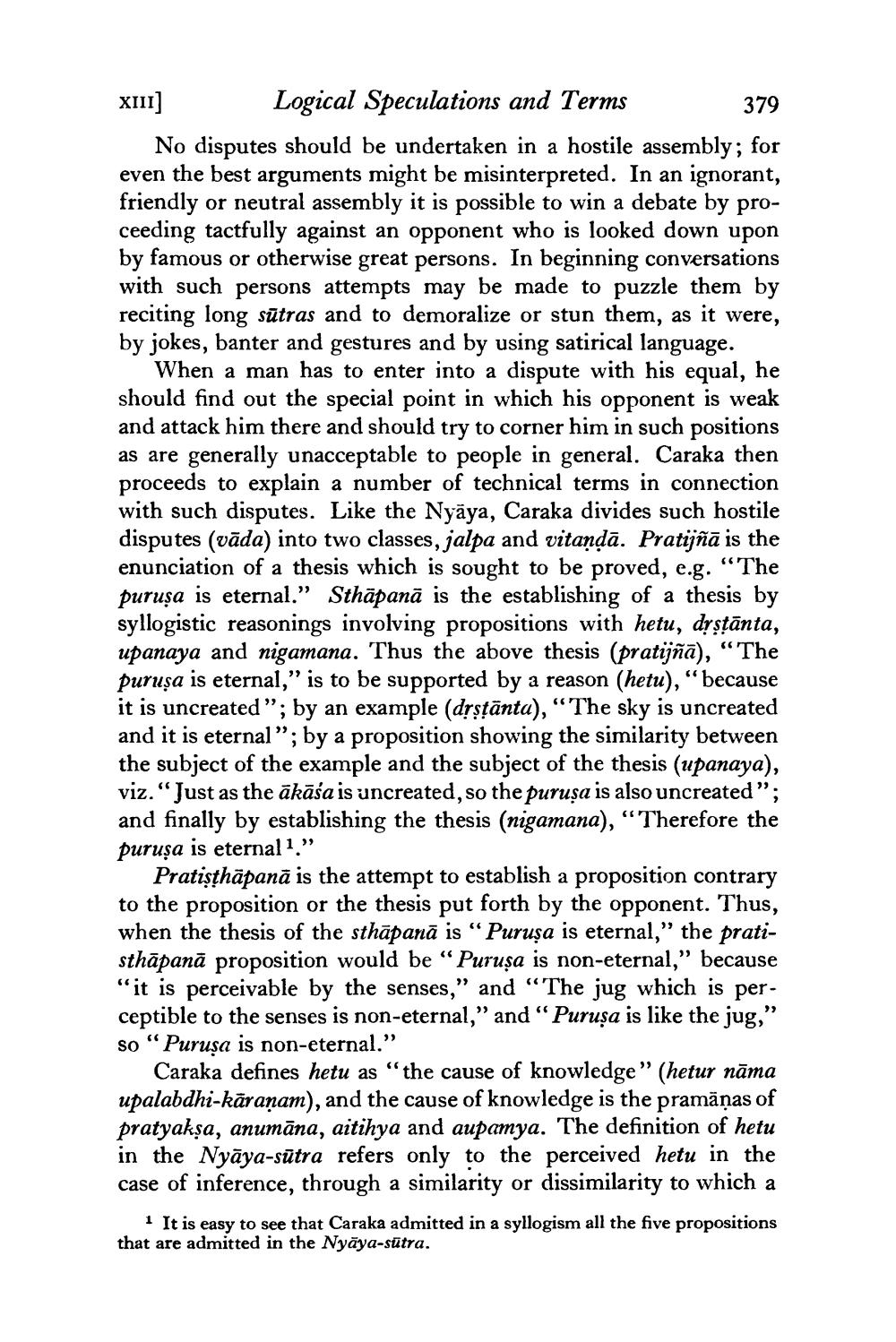________________
x111] Logical Speculations and Terms
379 No disputes should be undertaken in a hostile assembly; for even the best arguments might be misinterpreted. In an ignorant, friendly or neutral assembly it is possible to win a debate by proceeding tactfully against an opponent who is looked down upon by famous or otherwise great persons. In beginning conversations with such persons attempts may be made to puzzle them by reciting long sūtras and to demoralize or stun them, as it were, by jokes, banter and gestures and by using satirical language.
When a man has to enter into a dispute with his equal, he should find out the special point in which his opponent is weak and attack him there and should try to corner him in such positions as are generally unacceptable to people in general. Caraka then proceeds to explain a number of technical terms in connection with such disputes. Like the Nyāya, Caraka divides such hostile disputes (vāda) into two classes, jalpa and vitandā. Pratijñā is the enunciation of a thesis which is sought to be proved, e.g. "The purusa is eternal.” Sthāpanā is the establishing of a thesis by syllogistic reasonings involving propositions with hetu, dystānta, upanaya and nigamana. Thus the above thesis (pratijñā), "The purusa is eternal," is to be supported by a reason (hetu), “because it is uncreated"; by an example (drstānta), “The sky is uncreated and it is eternal”; by a proposition showing the similarity between the subject of the example and the subject of the thesis (upanaya), viz."Just as the ākāśa is uncreated, so the puruşa is also uncreated"; and finally by establishing the thesis (nigamana), “Therefore the purusa is eternal 1."
Pratisthāpanā is the attempt to establish a proposition contrary to the proposition or the thesis put forth by the opponent. Thus, when the thesis of the sthāpanā is “Puruşa is eternal,” the pratisthāpanā proposition would be “Purușa is non-eternal,” because “it is perceivable by the senses," and “The jug which is perceptible to the senses is non-eternal," and "Puruşa is like the jug," so “Purusa is non-eternal.”
Caraka defines hetu as "the cause of knowledge” (hetur nāma upalabdhi-kāraṇam), and the cause of knowledge is the pramāṇas of pratyakşa, anumāna, aitihya and aupamya. The definition of hetu in the Nyāya-sūtra refers only to the perceived hetu in the case of inference, through a similarity or dissimilarity to which a
1 It is easy to see that Caraka admitted in a syllogism all the five propositions that are admitted in the Nyāya-sūtra.




